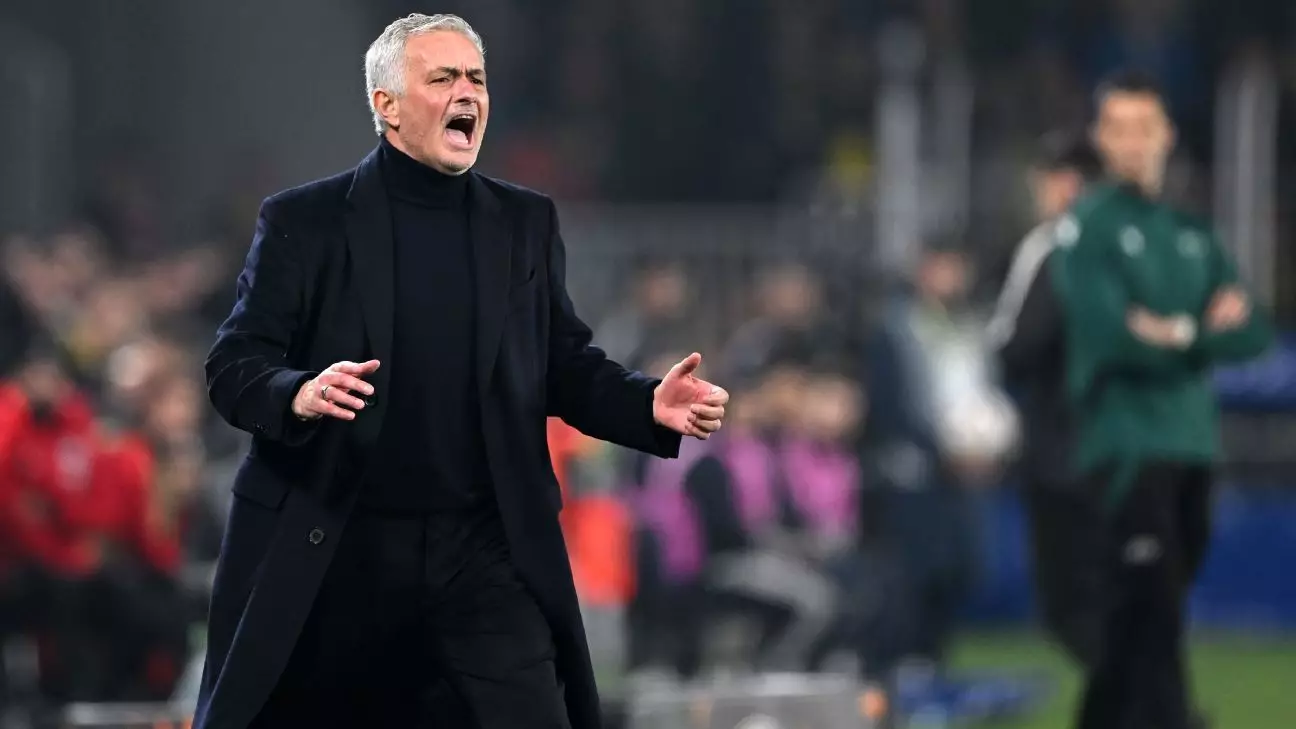In a dramatic turn of events in the Turkish Süper Lig, Fenerbahçe has launched legal proceedings against their archenemy Galatasaray. Central to this escalating conflict is their coach, Jose Mourinho, who has been accused of making discriminatory remarks following a tense Istanbul derby. The clash has not only ignited heated debates amongst fans but also raised significant legal and ethical questions within the realm of Turkish football.
Galatasaray has stepped forward with serious accusations, claiming that Mourinho’s post-match comments were laden with racist undertones. Specifically, they have criticized him for likening the opposing bench’s exuberant behavior to “jumping around like monkeys.” Such language, they argue, crosses a boundary and detracts from the professionalism expected in sportsmanship. Galatasaray’s leaders have characterized the remarks as “unequivocally inhumane,” hence justifying their call for action against the renowned coach.
In a counter-offensive, Fenerbahçe has vehemently defended Mourinho, asserting that his words were taken out of context. They describe Galatasaray’s interpretation as an egregious misrepresentation aimed solely at tarnishing Mourinho’s reputation and inciting hostility against him. As part of their response, Fenerbahçe has revealed their intention to seek 1 million 907 thousand Turkish liras—a symbolic figure that harkens back to the year of the club’s establishment, 1907—citing “moral damages” to Mourinho’s personal rights.
Fenerbahçe’s statement not only signifies their intent to vindicate their coach but is also reflective of their commitment to uphold their honor in the fierce rivalry against Galatasaray. The legal action has placed an unprecedented dimension on what is typically a fierce sporting rivalry, transforming it into a courtroom drama that could have lasting implications for the reputations of both clubs.
The Turkish Football Federation waded into the controversy earlier this week, imposing a four-match ban on Mourinho along with a hefty fine. This sanction was a response to his critical remarks about local referees, which came after the contested derby match against Galatasaray. While Mourinho welcomed the introduction of a foreign referee for the match, his subsequent comments seemed to undermine the local officials, further complicating the fallout from his statements.
Mourinho’s history in management, which includes stints at high-profile clubs, has left him under a microscope in Turkey. His prior sanctions for confrontational remarks have positioned him in a precarious situation, where every comment can be scrutinized and misinterpreted. As this current saga unfolds, it reinforces the complexities tied to cultural differences and sensitivities in modern football.
The legal confrontation between Fenerbahçe and Galatasaray over Mourinho’s comments represents a dangerous intersection of sports, law, and social issues. What started as a football rivalry has now ballooned into a multi-faceted dispute, sparking critical dialogues about racism, nationalism, and the ethics of speech in sports. The outcome of this case could reverberate far beyond the confines of Turkish football, potentially influencing how clubs manage public relations and navigate controversies in this contentious era of global sports. As fans brace for the legal battle ahead, one thing remains certain: the rivalry has intensified, drawing both clubs into uncharted territory.

